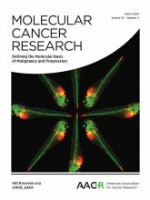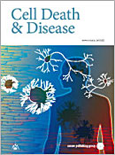
CANCER CELL
Scope & Guideline
Your Essential Resource for Cutting-Edge Cancer Studies
Introduction
Aims and Scopes
- Cancer Immunology and Immunotherapy:
Research focusing on the mechanisms of immune evasion by tumors and the development of immunotherapeutic strategies, including checkpoint inhibitors and CAR T-cell therapies. - Tumor Microenvironment:
Investigation into the interactions between tumor cells and their microenvironment, including the role of stromal cells, extracellular matrix, and immune cell populations in cancer progression. - Molecular and Cellular Biology of Cancer:
Studies that elucidate the genetic, epigenetic, and metabolic alterations in cancer cells and their implications for tumorigenesis and therapy resistance. - Single-Cell and Multi-Omics Approaches:
Utilization of cutting-edge technologies such as single-cell RNA sequencing and multi-omics profiling to understand the heterogeneity of tumors and their responses to treatment. - Therapeutic Target Identification:
Research aimed at discovering novel therapeutic targets, including genetic and metabolic vulnerabilities in various cancer types, to enhance treatment efficacy. - Clinical Trials and Translational Research:
Reports on clinical trials that evaluate new therapies and their mechanisms of action, providing insights into patient responses and potential biomarkers.
Trending and Emerging
- Precision Medicine and Personalized Therapies:
An increasing focus on precision medicine, including biomarker-driven treatments and individualized therapy approaches, is evident as researchers strive to optimize patient outcomes. - Microbiome and Cancer Interactions:
Emerging studies are exploring the role of the microbiome in cancer progression and treatment response, indicating a growing interest in the interplay between microbial communities and tumor biology. - Novel Immunotherapeutic Strategies:
There is a surge in research on novel immunotherapeutic strategies, including bispecific T-cell engagers and combination therapies that enhance anti-tumor immune responses. - Single-Cell Profiling and Spatial Genomics:
The use of single-cell profiling and spatial genomics is on the rise, enabling researchers to map tumor heterogeneity and microenvironment interactions at unprecedented resolution. - Cancer Metabolism and Metabolic Reprogramming:
Research on cancer metabolism, particularly regarding how tumors alter metabolic pathways to support growth and evade therapies, is gaining traction as a potential therapeutic avenue. - Artificial Intelligence in Oncology:
The integration of artificial intelligence and machine learning in cancer research is becoming more prevalent, helping to analyze complex datasets and predict treatment responses.
Declining or Waning
- Traditional Chemotherapy Mechanisms:
Research focusing primarily on conventional chemotherapy mechanisms appears to be waning, with a shift towards targeted therapies and immunotherapy as primary treatment modalities. - Basic Cancer Genetics:
While foundational studies in cancer genetics remain important, there is a noticeable decline in papers solely focused on basic genetic studies without translational or therapeutic implications. - In Vitro Models without In Vivo Validation:
There is a decreasing emphasis on in vitro studies that do not incorporate in vivo validation, as the field increasingly prioritizes research that translates directly to clinical applications. - Epidemiological Studies:
Epidemiological research related to cancer incidence and survival rates has become less prominent as more researchers focus on mechanistic studies and personalized medicine approaches.
Similar Journals

Molecular Therapy Oncolytics
Transforming Cancer Care Through Innovative ResearchMolecular Therapy Oncolytics is an esteemed Open Access journal published by CELL PRESS, focusing on cutting-edge research in the fields of oncology, molecular medicine, and pharmacology. Established in 2014, the journal has quickly gained a prominent position in the academic community, reflected in its impressive Q1 and Q2 rankings across various categories including Cancer Research, Molecular Medicine, and Pharmacology. With an impactful presence in the UK and a strong international readership, it aims to disseminate significant advancements in therapeutic strategies targeted at cancer treatment and management. By providing a platform for peer-reviewed research, Molecular Therapy Oncolytics plays a critical role in bridging the gap between scientific innovation and clinical application, making it an invaluable resource for researchers, healthcare professionals, and students striving to contribute to the evolving landscape of oncology.

MOLECULAR CANCER RESEARCH
Advancing the Frontiers of Cancer KnowledgeMOLECULAR CANCER RESEARCH, published by the American Association for Cancer Research, stands as a pivotal journal in the fields of cancer research, molecular biology, and oncology. With an impressive impact factor and recognized as a Q1 journal in its respective categories for 2023, it serves as an essential resource for researchers, professionals, and students aimed at advancing our understanding of cancer mechanisms and therapies. The journal, identified by the ISSN 1541-7786 and E-ISSN 1557-3125, provides a platform for cutting-edge research and clinical applications, emphasizing innovation and collaboration within the scientific community. With its focus on high-quality, peer-reviewed articles, MOLECULAR CANCER RESEARCH is vital for anyone looking to stay abreast of significant advancements in cancer biology and treatment strategies. For more details and to access the journal's content, please visit the publisher's link.

CANCER AND METASTASIS REVIEWS
Transforming Insights into Effective TherapiesCancer and Metastasis Reviews, published by Springer, is a leading journal in the field of oncology and cancer research. With an impressive impact factor placing it in the Q1 category for both Cancer Research and Oncology as of 2023, this journal is ranked 29th out of 404 in Medicine, Oncology, and 22nd out of 230 in Biochemistry, Genetics, and Molecular Biology, reflecting its significant influence and prestige in the academic community. Established in 1982, the journal covers a wide spectrum of topics related to the mechanisms of cancer progression and metastasis, making it an essential resource for researchers, healthcare professionals, and students dedicated to understanding and tackling cancer. Although the journal does not provide open access options, the impactful research it publishes contributes to advances in therapeutic strategies and enhances the collective knowledge surrounding cancer pathophysiology. With research converging from 1982 to 2024, Cancer and Metastasis Reviews continues to be a vital platform for disseminating high-quality scientific information in the ever-evolving landscape of cancer research.

FASEB BioAdvances
Transforming Insights into Impactful ResearchFASEB BioAdvances, published by WILEY, is an esteemed open-access journal dedicated to advancing the fields of biochemistry, molecular biology, and physiology. Since its inception in 2019, the journal has rapidly established a significant presence within the academic community, boasting an impressive impact factor reflective of its Q2 and Q3 standings across various categories, including Biochemistry, Genetics and Molecular Biology, Cancer Research, Molecular Medicine, and Physiology. The journal aims to disseminate high-quality research and innovative findings to enhance the understanding of biological processes, making it a vital resource for researchers, professionals, and students alike. With its commitment to open access, FASEB BioAdvances ensures that groundbreaking research is available to a global audience, facilitating collaboration and exploration in these rapidly evolving scientific domains.

JOURNAL OF EXPERIMENTAL & CLINICAL CANCER RESEARCH
Bridging experimental insights with clinical breakthroughs.The JOURNAL OF EXPERIMENTAL & CLINICAL CANCER RESEARCH, published by BMC, is a leading open-access journal dedicated to advancing the field of cancer research and oncology. Since its inception in 1982, this esteemed journal has fostered innovation and collaboration in the scientific community, as evidenced by its outstanding impact factor and position in the Q1 quartile for both Cancer Research and Oncology categories in 2023. With a proud commitment to disseminating high-quality research, the journal operates under an open-access model, ensuring that findings are readily accessible to researchers, healthcare professionals, and students worldwide. The journal has established a distinguished reputation, ranking 23rd out of 404 in Medicine oncology and 16th out of 230 in Biochemistry, Genetics, and Molecular Biology (cancer research), showcasing its importance and influence in guiding the future of cancer treatment and research. With the aim of bridging experimental and clinical research, this journal invites submissions that push the boundaries of our understanding of cancer biology and therapy.

BIOCELL
Unveiling the Secrets of Cellular InnovationBIOCELL is a distinguished peer-reviewed journal dedicated to the field of Cell Biology, published by TECH SCIENCE PRESS. Since its inception in 1995, the journal has been at the forefront of disseminating innovative research, with converged publication years extending from 1995 to 2013 and from 2015 to 2024. Although it currently holds a Q4 ranking in the Cell Biology category according to the 2023 category quartiles, BIOCELL aims to foster advancements by providing a platform for researchers, professionals, and students to share their findings in biochemistry, genetics, and molecular biology. The journal is available in both print (ISSN: 0327-9545) and digital formats (E-ISSN: 1667-5746) and seeks to attract contributions that enhance scholarly dialogue and understandings of cellular mechanisms and innovations. With a commitment to quality research and critical discourse, BIOCELL plays an important role in nurturing the scientific community within Argentina and beyond, offering vital insights that contribute to the advancement of the life sciences.

Advances in Cancer Biology-Metastasis
Unraveling the Secrets of Metastasis.Advances in Cancer Biology-Metastasis is an emerging journal published by Elsevier, aimed at advancing our understanding of the complexities of cancer biology, with a specific focus on the mechanisms and pathways related to metastasis. With an E-ISSN of 2667-3940, this journal offers a platform for researchers, professionals, and students in the fields of Cancer Research and Cell Biology to disseminate innovative findings and discuss novel therapeutic approaches. Though currently classified in the Q4 quartile across both Cancer Research and Cell Biology categories, the journal aspires to enhance its impact through rigorous peer review and high-quality publication. Positioned to cover the years from 2021 to 2024, it seeks to bridge gaps in foundational knowledge and promote collaborative research efforts that could pivot the current understanding of cancer metastasis. Researchers are encouraged to take advantage of this platform to advocate for advancements in cancer biology, making significant contributions that can influence both academic and clinical practices.

Cell Death & Disease
Illuminating pathways from cell death to disease impact.Cell Death & Disease, published by SpringerNature, is a premier open-access journal dedicated to disseminating high-quality research on the mechanisms and implications of cell death, disease pathology, and therapeutic responses. Since its inception in 2010, the journal has quickly established itself within the top tier of academic publishing, achieving a notable impact factor and earning Q1 rankings in several critical categories including Cancer Research, Cell Biology, Cellular and Molecular Neuroscience, Immunology, and Medicine (miscellaneous). With its commitment to open access, Cell Death & Disease ensures that groundbreaking research is available to a global audience, fostering collaboration and advancing knowledge across disciplines. Residing at the forefront of crucial scientific discourse, this journal not only attracts submissions from leading researchers but also significantly influences the fields of molecular biology, immunology, and neurology. By bridging the gap between basic science and clinical applications, it provides vital insights for professionals, academicians, and students alike.

FEBS Journal
Connecting Researchers to Transformative DiscoveriesFEBS Journal is a prestigious, peer-reviewed publication dedicated to advancing the field of biochemistry, cell biology, and molecular biology. Published by WILEY in the United Kingdom, this journal boasts an impressive impact factor and ranks in the top quartile (Q1) across multiple relevant categories, including Biochemistry, Cell Biology, and Molecular Biology, reflecting its significant contribution to scientific research. With an ISSN of 1742-464X and an E-ISSN of 1742-4658, the FEBS Journal publishes original research and comprehensive reviews that push the boundaries of knowledge and innovation in the biosciences. As a vital resource for researchers, professionals, and students alike, the journal offers Open Access options, ensuring that cutting-edge discoveries are accessible to a broad audience. With a publication history converging from 2005 to the present and a robust emphasis on high-quality scholarly work, the FEBS Journal remains an essential platform for the dissemination of significant findings and advancements in the life sciences.

CANCER IMMUNOLOGY IMMUNOTHERAPY
Exploring Innovative Therapies for Cancer PatientsCancer Immunology Immunotherapy, published by Springer, stands as a premier journal in the fields of cancer research and immunology, holding a prestigious Q1 ranking across multiple categories, including Oncology and Medicine as of 2023. With an ISSN of 0340-7004 and an E-ISSN of 1432-0851, this journal has been a pivotal platform for groundbreaking research since its inception in 1976, continuing to provide insight into the complex interactions between the immune system and cancer. The journal's scope encompasses a wide array of topics, including novel therapeutic strategies, immunological mechanisms, and translational science aimed at advancing treatment outcomes for cancer patients. Renowned for its rigorous peer-review process and high impact factor, it attracts contributions from leading experts and researchers around the globe, positioning itself among the top-tier publications with Scopus rankings that reflect its vital role in advancing the field. Access options are generally subscription-based, ensuring a comprehensive resource for professionals and academics seeking to deepen their understanding and make meaningful contributions to cancer immunotherapy.